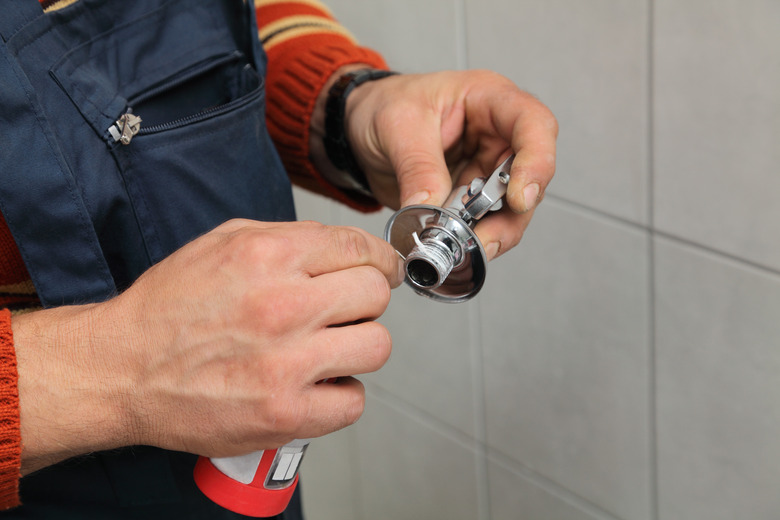Pipe Dope Vs. Teflon Tape
Whenever a job requires making a connection between two threaded ends of a pipe, the possibility of leaking exists. It doesn't matter what kind of pipe it is; from plastic to steel gas line, threads are imperfect and will leak if not protected with additional material placed on the threads. There are two basic types of material that stop leaks: Teflon tape and pipe dope.
Pipe Dope
Pipe Dope
Pipe dope is a chemical sealant with a texture similar to a thick paste. It is made to stand up against the types of fluids it contacts. It can be purchased at any hardware store and comes in cans of various sizes with applicator brushes or can be bought in a tube. It is advertised not only to seal, but to lubricate joints, making unthreading an easy task.
Teflon Tape
Teflon Tape
Also called plumber's tape, Teflon tape comes spooled onto rolls much like adhesive tape. Like pipe dope, it is designed to seal threaded joints against leakage, but it's a stretchy film that can be wrapped around threads. It is normally white in color but can also be color-coded to denote what the pipe is carrying. Green tape seals oxygen-carrying lines, yellow seals gas lines and pink and white are for water lines; pink tape is higher-density and more durable than white tape.
Water Connections
Water Connections
Most homeowners have a roll of Teflon tape in their junk drawer, or tucked away in their tool box, as this tape works great for almost all residential applications. From plastic water pipe connections under your sink, to the threaded fitting in your lawn sprinkler system to the hose lines on the air compressor sitting in your garage, Teflon tape does the job very well.
Natural Gas Lines
Natural Gas Lines
If your home has a gas dryer, stove, water heater or furnace, you will have heavy steel pipes within your walls that carry natural gas. Natural gas is highly explosive and dangerous, therefore, the threaded connections must not leak. Strict building codes enforced by local inspectors require the completed gas piping to be pressurized with air and gauged for at least twenty four hours to make certain there are no leaks. According to most building codes, either type tape of the yellow-colored can be used for gas connections; however, most plumbers, as well as inspectors, prefer pipe dope because it is thicker and usually seals better.
Which to Use
Which to Use
For water lines, drains, air compressors and faucets, Teflon tape works very well, as long as it's installed properly by wrapping the threads in the direction they will turn while joining. It's clean, non-messy and simple to use. Pipe dope, on the other hand, is messy, but it's been around longer, and some states require it for natural gas lines inside the home. Both of these products work well, so it's a question of what you are using it for to determine which is better.
